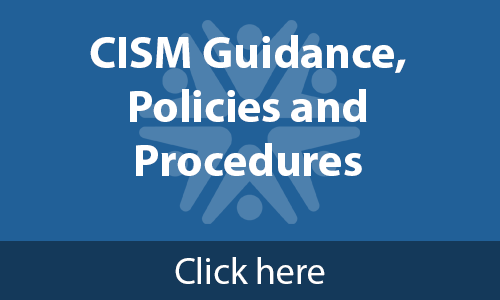Critical Incident Stress Management (CISM)
Critical Incident Stress Management (CISM)
Critical Incident Stress Management, or CISM, is an intervention protocol developed specifically for dealing with traumatic events. It is a formal, highly structured, and professionally recognised process for helping those involved in a critical incident to share their experiences and emotions, learn about stress reactions and symptoms.
It is a confidential, voluntary process, sometimes called 'psychological first aid'. It is not counselling or psychotherapy.
First developed for use with military combat veterans and then civilian first responders (police, fire, ambulance, emergency workers and disaster rescuers), it has now been adapted and used virtually everywhere there is a need to address traumatic impact in people’s lives.
What is a critical incident?
Critical incidents are unusually challenging events that have potential to create significant human distress and can overwhelm one’s usual coping mechanisms (Mitchell, 2006, p.20).
Critical Incident Stress Management (CISM):
It is a specialised package of Critical Incident techniques that are linked to each other and blended together to alleviate the reactions to traumatic experiences.
CISM aims to:
- Minimise the emotional impact of Critical Incidents on staff
- Increase the resistance, resilience and recovery of staff to harmful stress
- Prevent harmful effects on staff by working with and supporting staff at the time of a Critical Incident
- Aid in preventing any chronic effects such as Acute Stress Disorder or Post-Traumatic Stress, using good education, follow up care, and prompt identification and referral to the EAP as required
CISM comprises a continuum of care and targets the response of individuals and groups of individuals to traumatic events rather than the incident or event itself.
Steps to Activating the CISM Process within Tusla
There are two options for initiating CISM support.
- If there is an incident involving an individual staff member and if peer support is needed, contact should be initiated with on-site CISM peer supporter who should inform HWEAP of support provided.
- If the incident affects a larger team or there is no peer supporter on site, contact should be made with the line manager who should in turn complete the activation form and forward to eap@tusla.ie for support.
- CISM Coordinator (HWEAP) will then contact the line manager to discuss required supports
Peer Supporters
A peer supporter is a colleague you work with daily, that has undergone training to support their colleagues following a critical incident. Peer supporters assist in normalising the feelings and emotions following an incident. They follow up with colleagues, CISM Coordinator (HWEAP) and point towards more specialised support if required.



